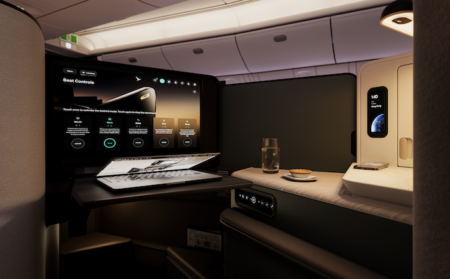July 21, 2015 – UK pilots are asking airlines to advise passengers to carry laptops, phones, tablets, e-books and cameras with lithium batteries safely in the aircraft cabin to reduce the risk of fires in the luggage hold.
According to BALPA (the British Airline Pilots’ Association), Li-ion batteries in everyday items are highly flammable and, when they short circuit, have a tendency to burst into high intensity fires, which are difficult to extinguish. Passengers usually carry devices with lithium batteries in their hand baggage, although this isn’t required by airlines. Also a phone, laptop or camera may inadvertently end up in the hold when a passenger is asked at the last minute to put their hand baggage in the hold due to lack of space in the aircraft cabin.
BALPA is encouraging airlines and regulators to look at what steps they could take to ensure devices powered by lithium batteries are only carried in the aircraft cabin, where a build up of gases or fire can be tackled more easily. The association also recommends that passengers should also be provided with advice on how to pack spare batteries safely in their hand baggage.
“Lithium battery fires have caused at least three cargo aircraft crashes and the UN safety regulator has banned a specific type of lithium battery (lithium metal) from being carried as cargo on passenger aircraft. BALPA is asking the UK safety regulator to consider extending this restriction to cargo and other aircraft so that no lithium battery of any kind is carried as cargo in aircraft until further research has been carried out on how they can be transported safely in bulk,” stated BALPA in a communication.
BALPA’s general secretary Jim McAuslan said, “Lithium batteries power the technology that enables passengers, pilots and cabin crew to travel light and stay connected, but they carry an aircraft fire risk that we must all protect against. UK pilots are always vigilant to emerging risks because we want to stop accidents before they happen and make every single flight a safe one.
“Small changes to current good safety practices will help keep us all safe while enabling passengers and pilots to carry the phones, laptops, tablets and e-books they depend upon for work and pleasure. We want to work with airlines and passengers to keep everyday lithium batteries on the aircraft but out of the luggage hold.”
Lithium battery fact file
• There are a number of different types of lithium batteries in use at the moment and new types are regularly being introduced. The most common types available currently are lithium metal and lithium ion/polymer. Lithium metal batteries tend not to be rechargeable and can often be found in watches and calculators. They can also be used as a direct replacement for standard sized (AAA for example) alkaline batteries and it may not be obvious what sort of battery you are using. Lithium ion/polymer batteries tend to be rechargeable and are often found in devices such as phones, laptops and cameras. They usually do not have the classic, cylindrical battery shape.
• All lithium batteries can suffer from ‘thermal runaway effects’, where the battery core temperature starts to increase, for example if they short circuit. If this continues the lithium battery will produce highly combustible, hot gases which may lead to an explosion and fire.
• Research shows that in certain conditions damaged lithium batteries of all types will give off explosive gases. Therefore BALPA thinks that all lithium batteries, including those contained in devices, should be carried in the cabin where any fire or fumes can be dealt with as opposed to in the hold where the quantity of these gases could build up unchecked with potentially devastating results.
• A simple and straightforward solution that BALPA is proposing is that at check-in passengers are asked if their hand baggage contains any lithium batteries or items that may contain lithium batteries. These bags could then be identifiable as containing items not suitable for carriage in the hold, for example by the use of a “Cabin Baggage Only” label. This would ensure that lithium batteries are not carried in the hold unintentionally.
• BALPA is also recommending that airlines and safety regulators advise passengers on how to safely carry lithium batteries, when they are not contained in a device. For example, informing passengers that if they want to carry a spare battery, it should be in their hand baggage, in good condition, packed to ensure that it cannot be damaged and with terminals covered so it is not possible to create a short circuit. Airlines should also consider limiting how many individual or packs of lithium batteries not in devices can be carried in hand luggage.
• This year (January 2015) the United Nations flight safety organization (ICAO) banned the carriage of lithium metal batteries as cargo on passenger aircraft. This rule only applies to lithium metal batteries carried as cargo not batteries installed in pieces of equipment, so does not apply to lithium metal batteries in devices packed in passenger luggage.
• There have been at least three aircraft accidents that are believed to have been caused by lithium battery fires, two of which were fatal. An Asiana 747 cargo aircraft crashed in July 2011 near South Korea and a UPS 747 cargo aircraft went down near Dubai in September 2010 with the loss of all crew.
• More and more airlines are now taking the decision not to carry any lithium batteries as freight and BALPA is recommending that UK and international safety regulators consider preventing all types of lithium batteries being carried as cargo on any aircraft until more research has been carried out into the safest way to package batteries and the maximum number it is safe to carry.
• The cargo shipment of counterfeit lithium batteries is a significant safety risk to be tackled by international safety organisations as they may not have the safety features that are built into certified lithium batteries.




